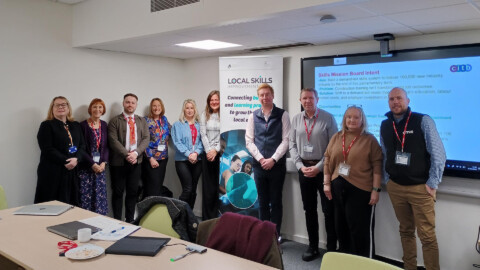Addressing staff shortages in hospitality: the need for bespoke education
The hospitality industry has long been celebrated for its vibrancy, diversity, and significant contribution to the economy. However, in recent years, this sector has faced a critical challenge: persistent staff shortages. This issue, exacerbated by Brexit and the COVID-19 pandemic, is not just a temporary blip but a systemic problem that requires a strategic and sustainable solution. One potential remedy lies in rethinking and revolutionising the way we educate and train our workforce.
The Scope of the Problem
Staff shortages in hospitality are not a new phenomenon, but their impact has never been more profound. This shortfall affects every aspect of the industry, from hotels and restaurants to bars and event management companies. The consequences are far-reaching: reduced service quality, increased operational stress on existing staff, and ultimately, a diminished customer experience.
The Root Causes
Several factors contribute to this shortage. The departure of many EU nationals post-Brexit, who previously formed a substantial part of the workforce, has created a significant gap. The pandemic further exacerbated the situation, with many workers leaving the industry during lockdowns and not returning. Moreover, the perception of hospitality as a low-skill, low-pay sector with limited career prospects has deterred potential talent.
The Role of Education
To address these challenges, it is crucial to change the narrative around hospitality careers and provide more tailored educational pathways that align with the industry’s needs. Traditional educational routes often overlook the specific skills and competencies required in hospitality. Herein lies an opportunity: the development of bespoke education programs that can attract, retain, and cultivate talent.
Bespoke Education: A Strategic Solution
Bespoke education involves creating tailored training programs that meet the unique demands of the hospitality sector. This approach could include:
Vocational Training and Apprenticeships: Practical, hands-on training that allows individuals to learn on the job while gaining formal qualifications. Apprenticeships can bridge the gap between theoretical knowledge and practical skills, providing a clear pathway to career advancement.
Specialised Hospitality Courses: Developing curricula that focus specifically on hospitality management, food management, hotel administration, and customer service excellence. These courses should be designed in collaboration with industry experts to ensure relevance and applicability.
Continuous Professional Development (CPD): Offering ongoing training opportunities for existing staff to upskill and adapt to new industry trends and technologies. CPD programs can enhance employee satisfaction and retention by demonstrating a commitment to their career growth.
Partnerships with Educational Institutions: Establishing collaborations between hospitality businesses and schools, colleges, and universities to create programs that are directly aligned with industry needs. This can also include work placements, giving students valuable real-world experience.
Changing Perceptions
Education alone is not enough; we must also work to change the perception of careers in hospitality. Highlighting success stories, promoting the diverse career opportunities within the sector, and emphasising the potential for career progression can make hospitality a more attractive option for job seekers. Additionally, improving working conditions and offering competitive pay and benefits will be crucial in retaining talent.
Conclusion
The staff shortages in the hospitality sector present a formidable challenge, but they also offer an opportunity for innovation and reform. By investing in bespoke education and training programs, we can equip the workforce with the skills they need to succeed and thrive in this dynamic industry. It is time to recognise the strategic importance of education in addressing our staffing crisis and to take bold steps towards a more sustainable future for hospitality.
Article written by Rob Lazenby, Vice-Chair of the Hospitality Forum








